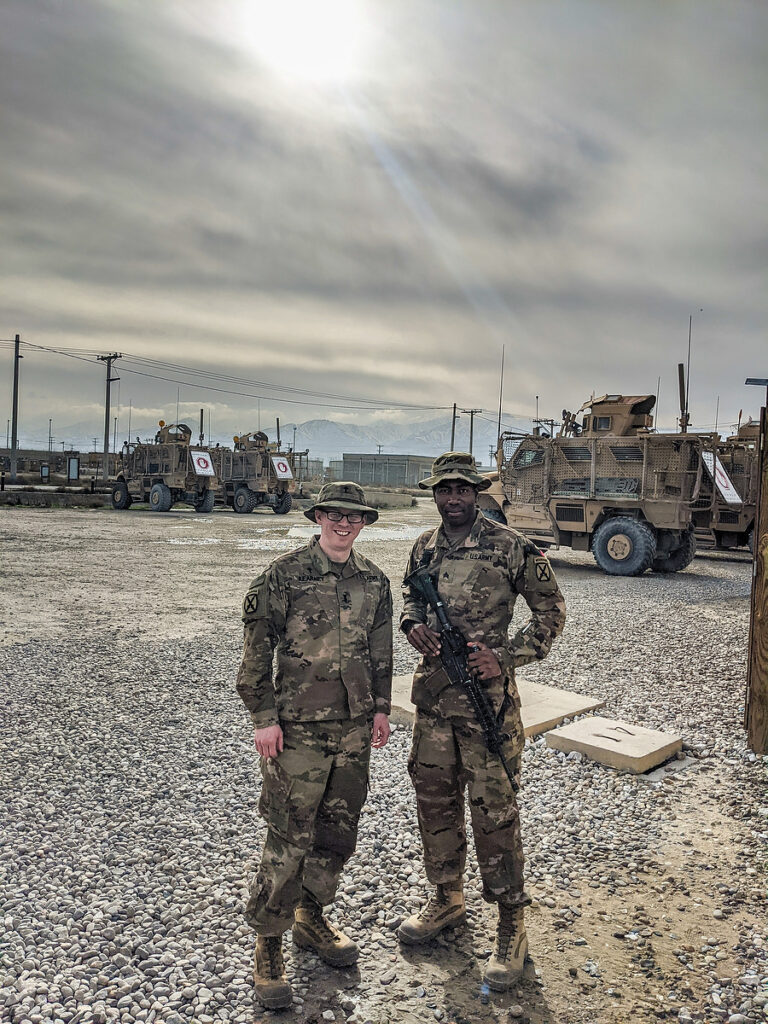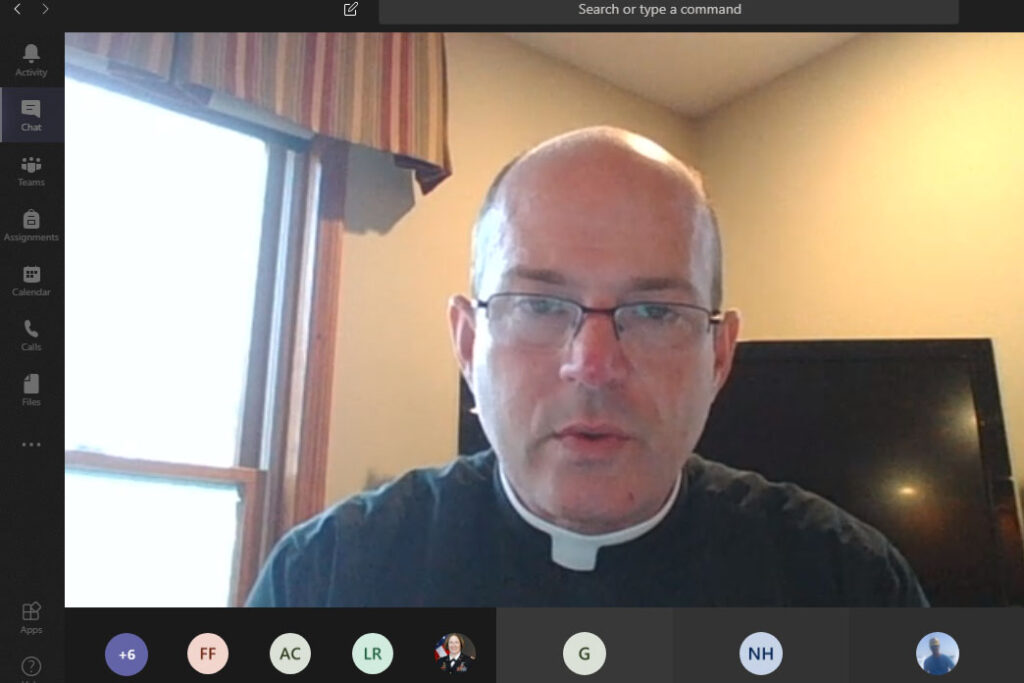Witness Moment
Serving Soldiers Even During a Pandemic
At home and abroad, the LCMS’ 200 military chaplains bring the Gospel to military members in all circumstances.
A military deployment is never easy. It’s challenging for the service member and his or her family. But the coronavirus (COVID-19) pandemic has added an extra layer of anxiety for many serving in the U.S. military as they worry about their own health and the safety of their loved ones back home.
Thanks be to God, The Lutheran Church—Missouri Synod’s (LCMS) 200 military chaplains are there alongside members of the military, providing the hope and comfort of the Gospel — even during a pandemic.

Chaplain (1st Lt.) Michael Kearney (left) stands with a soldier. (Photograph courtesy Michael Kearney)
(Header photograph courtesy Robert Carter Jr.)
“One of the great things about being an Army Chaplain is that I’m able to go to people where they live, where they work and where they play,” said Chaplain (1st Lt.) Michael Kearney, who deployed to Afghanistan in March. “I’ve been able to bring Christ to pilots on the flight line, soldiers gearing up to go outside the wire, mechanics and engineers as they fix and build equipment, soldiers and civilians sitting in quarantine, and people going about their lives in a deployed setting.”
Even on a military base in Afghanistan, Kearney’s ministry has been impacted by the pandemic. The U.S. military implemented new measures to keep soldiers safe for duty, and Kearney spent two weeks in a precautionary quarantine upon his arrival. Once cleared, he began offering virtual services as well as in-person services by appointment. He works a 12-hour shift, starting at noon, to better accommodate the schedules of his flock.
He also is responsible for the base prayer box, where people can leave prayer requests. “Seeing and offering these prayers has humbled and inspired me. Many people are praying for their families back home, their livelihoods here, for specific needs or the general welfare,” he said, noting that he loves to see prayers of thanksgiving come through when a prayer has been answered.
Soldiers have reacted to COVID-19 in different ways. Some have reflected on their lives and looked to their chaplain to answer questions about the faith. For many soldiers, the chaplain and religious affairs specialist — who together make up the Unit Ministry Team — may be the first people of faith they have gotten to know.

Chaplain (Col.) Robert Carter Jr.
“This time has made me a sounding board as soldiers are reevaluating priorities and looking at what they want to do next when this mission ends and their ‘regular’ life starts back up again,” said Chaplain (Col.) Robert Carter Jr., who is in the Army Reserve in addition to serving as director of Pastoral Care for Montefiore Nyack Hospital in Nyack, N.Y. He also leads Sunday worship at the Old Cadet Chapel at the United States Military Academy, West Point.
Prior to being mobilized and sent to New Orleans to assist FEMA with the COVID-19 response, Carter was already adapting to the emerging pandemic. At the hospital, he was wearing personal protective equipment, carrying copies of the liturgy to avoid bringing his Pastoral Care Companion into patient rooms, and helping patients connect with loved ones virtually.
Carter says that many in his unit feel proud to be helping people during this time, but it’s not easy to leave their family members on their own, especially now. He understands, since his wife and two children are still in New York state. “One of the scariest parts of service in the military is you have to recognize that your family learns how to exist without you,” he said.
In addition, the isolation and uncertainty of the pandemic have increased some people’s struggles, whether that’s with substance abuse, thoughts of suicide or other issues. As Carter provides individual counseling and spiritual care, he’s always ready to refer someone to the right resources when he notices these warning signs.
Whether conducted in person or online, the task of Carter, Kearney and the Synod’s other chaplains is still the same, as they care for their flocks and share the hope of the Gospel. “The Chaplain Corps is committed to … cultivate community, physically and virtually, regardless of the operating conditions,” Carter said.
Learn More
- Read more about LCMS Ministry to the Armed Forces.
- Support LCMS Ministry to the Armed Forces.
Megan K. Mertz
Managing editor of Lutherans Engage the World and chief copy editor for LCMS Communications.

